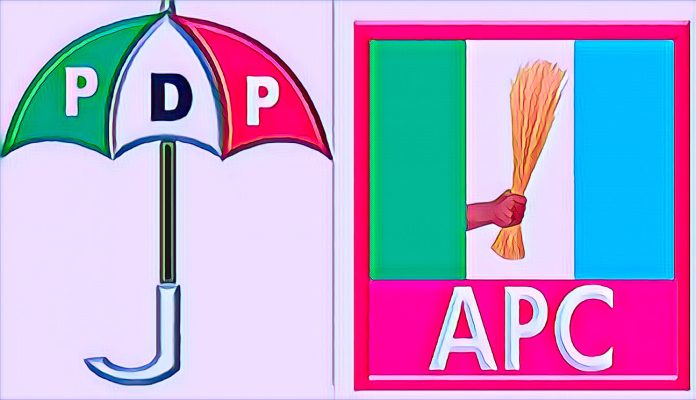Fifty Nigerian civil society organizations (CSOs) are raising their voices against corruption in the government. At a press conference in Abuja, the groups issued a powerful statement demanding that political parties take a clear stance against corruption by denouncing members facing corruption allegations.
CSOs Upset Over Presidential Appointments
The CSOs directly criticized President Bola Tinubu’s recent appointments of politicians with outstanding corruption charges. They argued that these appointments not only undermine ongoing anti-corruption efforts but also erode public trust in the government.
“These appointments,” the statement declared, “expose anti-corruption work to serious setbacks and deliberate sabotage.” The CSOs believe that by offering positions of power to individuals facing corruption investigations, the government is sending a mixed message and weakening the fight against corruption.
Challenges Hobbling Anti-Corruption Efforts
The CSOs outlined several factors hindering progress in tackling corruption. These challenges include:
- Lack of Transparency and Accountability: The groups called out a persistent culture of secrecy within the government, making it difficult to hold public officials accountable.
- Inadequate Funding for Anti-Corruption Agencies: The statement highlighted the limited resources allocated to anti-corruption agencies like the EFCC and ICPC, hindering their ability to effectively investigate and prosecute corruption cases.
- Judicial Corruption: A dysfunctional justice system was identified as a major obstacle. The CSOs expressed concern over judges who obstruct investigations and prosecutions through injunctions and other tactics, allowing suspected corrupt individuals to escape justice.
- The Role of Foreign Enablers: The statement pointed to the involvement of foreign actors who assist corrupt practices. These “enablers,” often from countries like Switzerland and the UK, help facilitate the movement of stolen funds abroad, making it more difficult to track and recover stolen money.
Recommendations for a More Effective Anti-Corruption Strategy
To address these challenges and create a more robust anti-corruption framework, the CSOs proposed a series of recommendations, including:
- Political Parties Must Denounce Corrupt Members: The CSOs urged political parties to take a stand against corruption by publicly denouncing members facing corruption charges. This would demonstrate a commitment to transparency and accountability within political parties.
- National Judicial Council Must Act on Corrupt Judges: The CSOs called for the National Judicial Council to take action against corrupt judges who compromise the justice system. Holding these individuals accountable would strengthen the integrity of the judiciary and ensure a more effective legal system.
- Increased Funding and Resources for Anti-Corruption Agencies: The statement emphasized the need for increased funding and resources for anti-corruption agencies. This would allow them to expand their capacity, conduct thorough investigations, and effectively prosecute corruption cases.
- Transparency and Accountability in Governance: The CSOs stressed the importance of transparency and accountability within all government institutions. This would involve measures such as increased public access to information, improved public financial management practices, and a stronger focus on ethical conduct among government officials.
A Call for Collective Action
The CSOs’ statement serves as a powerful reminder of the ongoing fight against corruption in Nigeria. By calling out these challenges and proposing concrete solutions, the groups are urging the government to take a more proactive stance against corruption. The fight for transparency and accountability requires collective action from civil society, the media, and the Nigerian public. Only through a concerted effort can Nigeria create a society where corruption is not tolerated and public officials are held accountable for their actions.
Source: Vanguard



